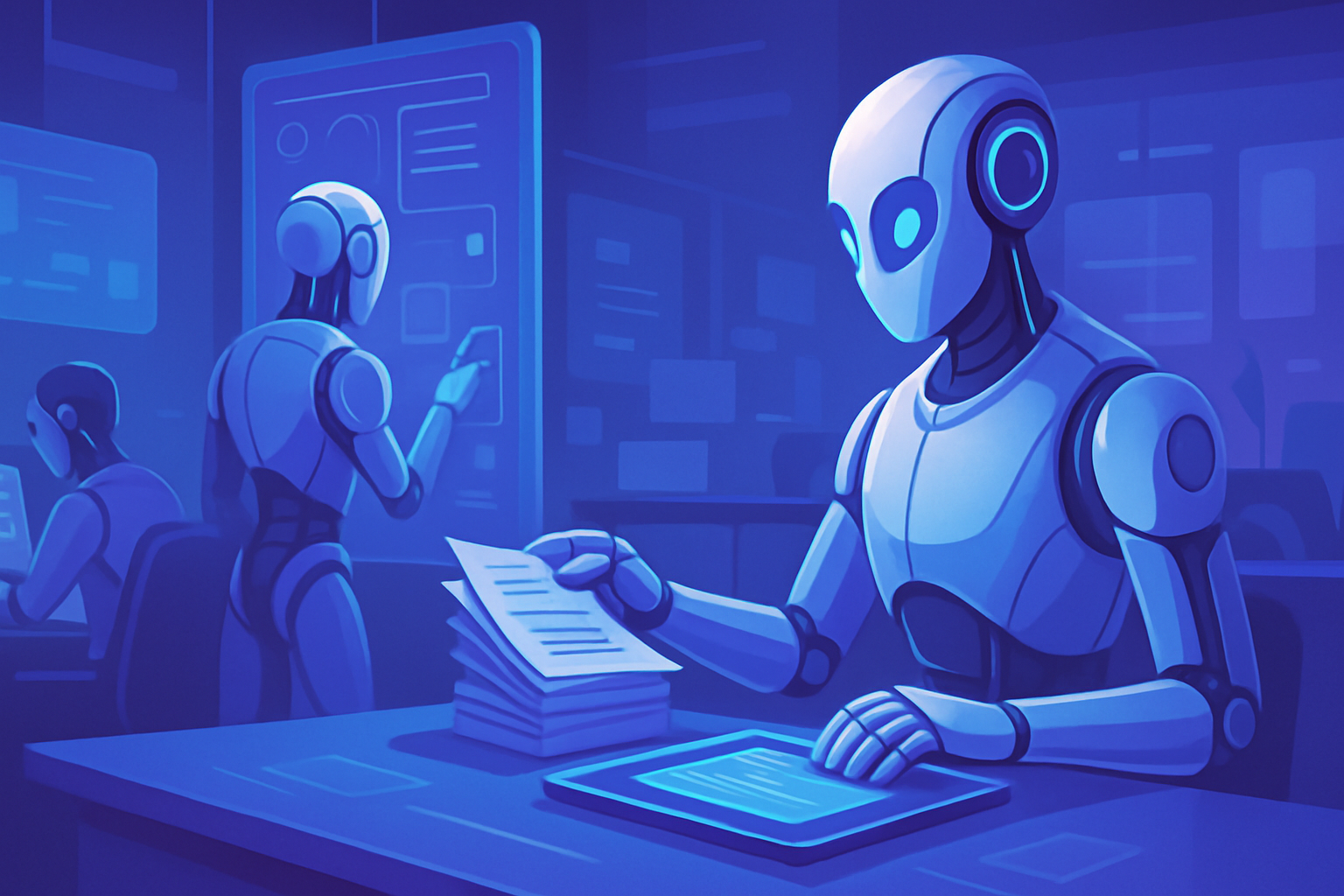Artificial intelligence agents are establishing themselves as strategic allies, capable of transforming the professional environment. An unprecedented autonomy characterizes these technologies, allowing them to perform monotonous tasks while optimizing efficiency. These super-software revolutionize recruitment and other fields, departing from traditional mechanisms.
_Robust, autonomous, and efficient, this is the future of collaboration._ Their integration into the workplace raises ethical and organizational challenges. *How to reconcile performance and human supervision?*
_The potential of AI agents exceeds expectations, offering innovative solutions._ Pioneering companies will testify to this radical transformation.
Artificial intelligence agents: a revolution in the world of work
Recent advances in artificial intelligence (AI) offer innovative perspectives for the professional world. Technology giants like OpenAI, Google, and Salesforce are bringing to market AI tools capable of performing monotonous tasks with impressive autonomy. These agents require little to no human supervision, a fact that prompts lively discussions across various economic sectors.
Features of AI agents
AI agents differ from simple chatbots, which respond to user questions with human assistance. These new agents, on the contrary, perform a multitude of tasks autonomously. In the field of recruitment, they can post job offers, compile CVs, send personalized follow-ups, and schedule appointments. The implications of these capabilities raise significant ethical and operational questions.
Application examples
The recent demonstration by Salesforce at a major event at the Parc des Expositions de la Porte de Versailles perfectly illustrates this trend. The company showcased an innovative platform of “AI agents,” presented as a major asset for customer relationship management. These agents can significantly streamline workflows, thereby reducing the burden on human collaborators.
A rise in AI capabilities
AI continues to evolve, and ambitious projects aim to strengthen the capabilities of these agents. For example, the article on the emergence of a new technological revolution in the next five years announces developments that could transform how companies manage their operational processes.
Concerns and challenges to address
The widespread adoption of these AI technologies poses significant challenges regarding ethics and security. Concerns related to personal data protection and algorithmic biases remain central. Incidents, such as the recent data breach at Intersport, highlight the need for appropriate regulation in the use of these powerful technologies.
Future perspectives
The implications for future collaborations between humans and machines seem immense. Some experts envision an even deeper integration of AI into daily professional life. The introduction of AI agents into various environments, including kindergartens, to promote learning and manage simple tasks, reveals significant potential.
Economic implications
The economic landscape could be transformed by the rise of these agents. Companies that adopt them could benefit from substantial efficiency gains, thereby reducing costs. According to experts, OpenAI‘s ability to empower these super-agents represents an unprecedented advance. A recent presentation of OpenAI’s ambitions highlights these promising innovations, anticipating a future where AI agents will constitute basic work tools.
Conclusion on AI innovations
Artificial intelligence agents represent a significant turning point in the relationship between work and technology. If this trend continues, proactive reflection will be necessary regarding its impact on employment, security, and ethical practices.
Frequently asked questions about artificial intelligence agents
What monotonous tasks can be automated by artificial intelligence agents?
Artificial intelligence agents can automate tasks such as managing emails, scheduling appointments, data entry, tracking applications, and many other repetitive administrative tasks.
How do artificial intelligence agents improve team efficiency?
By taking on repetitive tasks, artificial intelligence agents allow teams to focus on higher-value activities, such as strategic decision-making and innovation.
Do artificial intelligence agents require human supervision?
Although they can operate autonomously for many tasks, minimal supervision is often recommended to ensure that artificial intelligence agents act in accordance with the company’s objectives.
What are the benefits of using artificial intelligence agents in recruitment?
In the field of recruitment, these agents can reduce processing times for applications, enhance the personalization of communications with candidates, and ensure greater consistency in the selection process.
How can it be guaranteed that artificial intelligence agents are ethical in their functions?
It is essential to establish clear guidelines and control mechanisms to ensure that artificial intelligence agents respect privacy and fairness throughout their operations.
What types of industries benefit most from the use of artificial intelligence agents?
Sectors such as human resources, finance, healthcare, and customer service particularly benefit from the integration of artificial intelligence agents to manage monotonous tasks and improve workflows.






